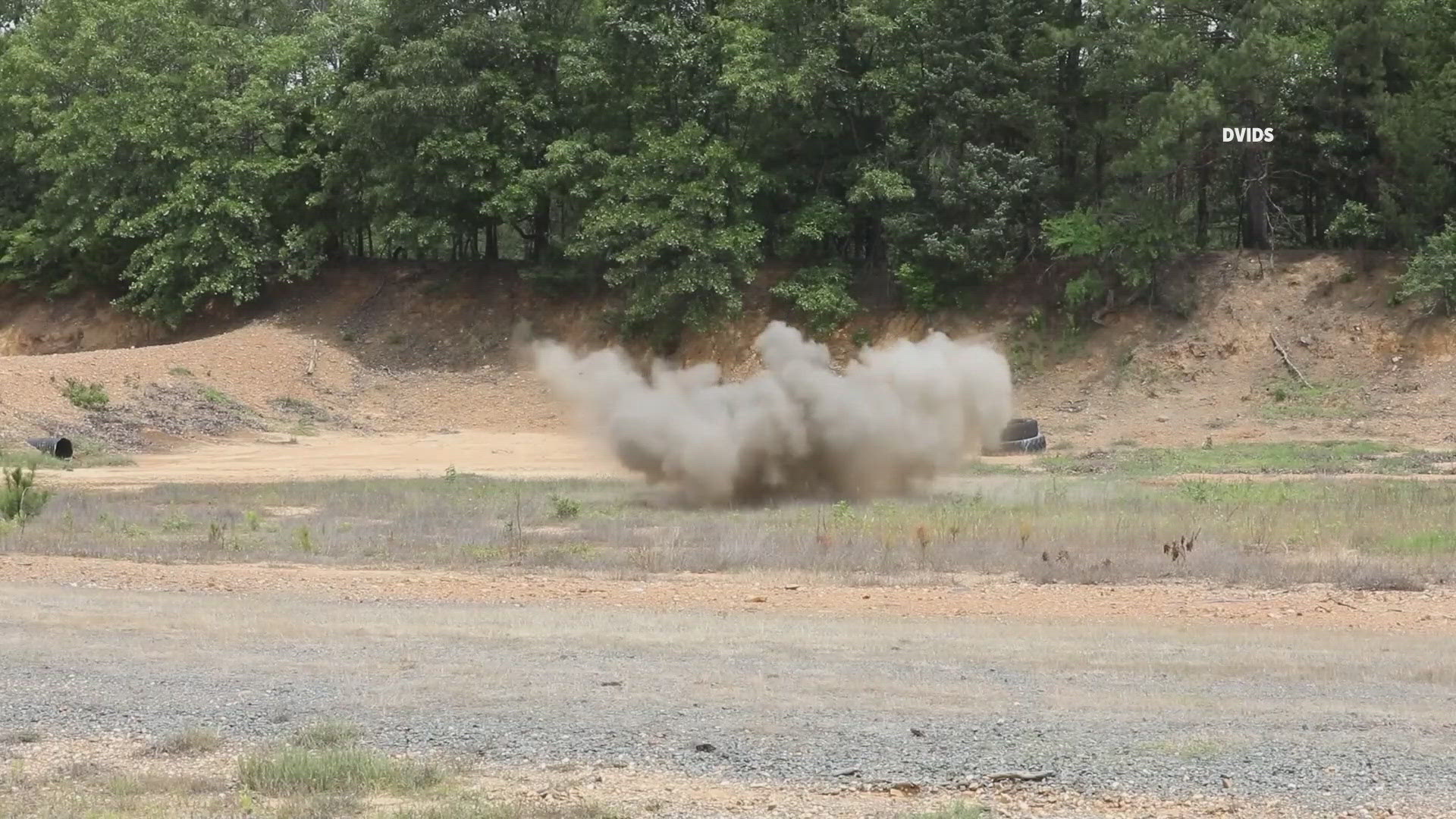PORTLAND, Maine — The U.S. Defense Department is going to require cognitive assessments for all new recruits as part of a broader effort to protect troops from brain injuries resulting from exposure to blasts, including during training.
The new guidance also requires greater use of protective equipment, minimum “stand-off distances” during certain types of training, and a reduction in the number of people in proximity to blasts.
Sen. Angus King, an independent from Maine who sits on the Armed Services Committee, applauded the Pentagon for “fast-tracking these needed changes.” He pointed to concerns that an Army reservist responsible for killing 18 people in Maine had a brain injury that could have been linked to his time training West Point cadets on a grenade range.
King's urging came after reports from the New York Times drew connections between Lewiston mass shooter Robert Card and his potential exposure to blasts during his time as a grenade instructor with the U.S. Army Reserve.
Card suffered from deteriorating mental health issues, including paranoia, before carrying out the mass shooting in Lewiston in October 2023. His family donated his brain to Boston University's CTE & Alzheimer’s Disease Research Centers. Researchers there found Card had suffered some kind of traumatic brain injury but could not specify it.
In the Army's report on the investigation into Robert Card's time in the Reserve before the shooting, investigators found he had suffered a fall off the roof of his home in 2008, a potential cause of head injuries.
But Lt. Gen. Jody Daniels, chief of the Army Reserves, has emphatically stated that a traumatic brain injury that was revealed in a postmortem examination of tissue was not linked to Robert Card’s military service.
The memorandum focused on repetitive exposures to heavier weapons like artillery, anti-tank weapons and heavy-caliber machines that produce a certain level of impact, not the grenades and small arms weapons used by Card.
Deputy Defense Secretary Kathleen Hicks described new guidance that replaces an interim memorandum from 2022 as “identifying and implementing best practices to promote overall brain health and countering traumatic brain injury.” The new memorandum, released last week, builds on existing efforts while leveraging research to protect personnel the future.
The cognitive assessments, to be required for new military personnel by year's end and for high-risk existing active duty and reserve personnel by autumn 2025, allow for the possibility of additional cognitive testing down the line to establish changes in brain function that could be caused by repeated exposure to blasts, officials said.
The cumulative effect of milder “subconcussive” blasts repeated hundreds or thousands of times during training can produce traumatic brain injuries similar to a single concussive event in combat, said Katherine Kuzminski from the Center for a New American Security, a Washington-based think tank focusing on national defense and security policies.
“This is a step in the right direction in that the Defense Department guidance clearly states that we’re not trying to hamstring our commanders, but there are ways that we can be more thoughtful about this,” she said.
The Defense Department has been evaluating units for brain health and performance effects of blast overpressure on brain health for about six years, said Josh Wick, a Pentagon spokesperson.
Emerging information from evaluations of both acute blasts and repetitive low-level exposures are linked to adverse effects, such as the inability to sleep, degraded cognitive performance, headaches and dizziness, and the Defense Department is committed to understanding, preventing, diagnosing and treating blast overpressure “and its effects in all its forms,” he said.
King issued a statement on the new policies, which can be read below:
"I am encouraged by the new policies being put in place by the Department of Defense to address brain injuries caused by blast overpressure. The more we focus efforts on the effects of blasts, the more we learn about the direct link to brain injury and how we can prevent these injuries in the future. By beginning a cognitive test program this year to screen every servicemember upon entry to the military, as well as screen current at risk servicemembers, we can learn how to manage these exposures with the aim of protecting their wellbeing and saving lives.
“It is clear this is an urgent issue and I commend the Pentagon for fast-tracking these needed changes. This urgency especially hits home for us here in Maine after reports showed the gunman responsible for the Lewiston shooting was repeatedly exposed to blasts during Army training events, likely causing a brain injury. This new policy marks another positive step toward helping our community heal, while also working to prevent unnecessary harm moving forward to our servicemembers and veterans. We have a solemn duty to protect the well-being of those who served to protect our nation and freedoms.”

